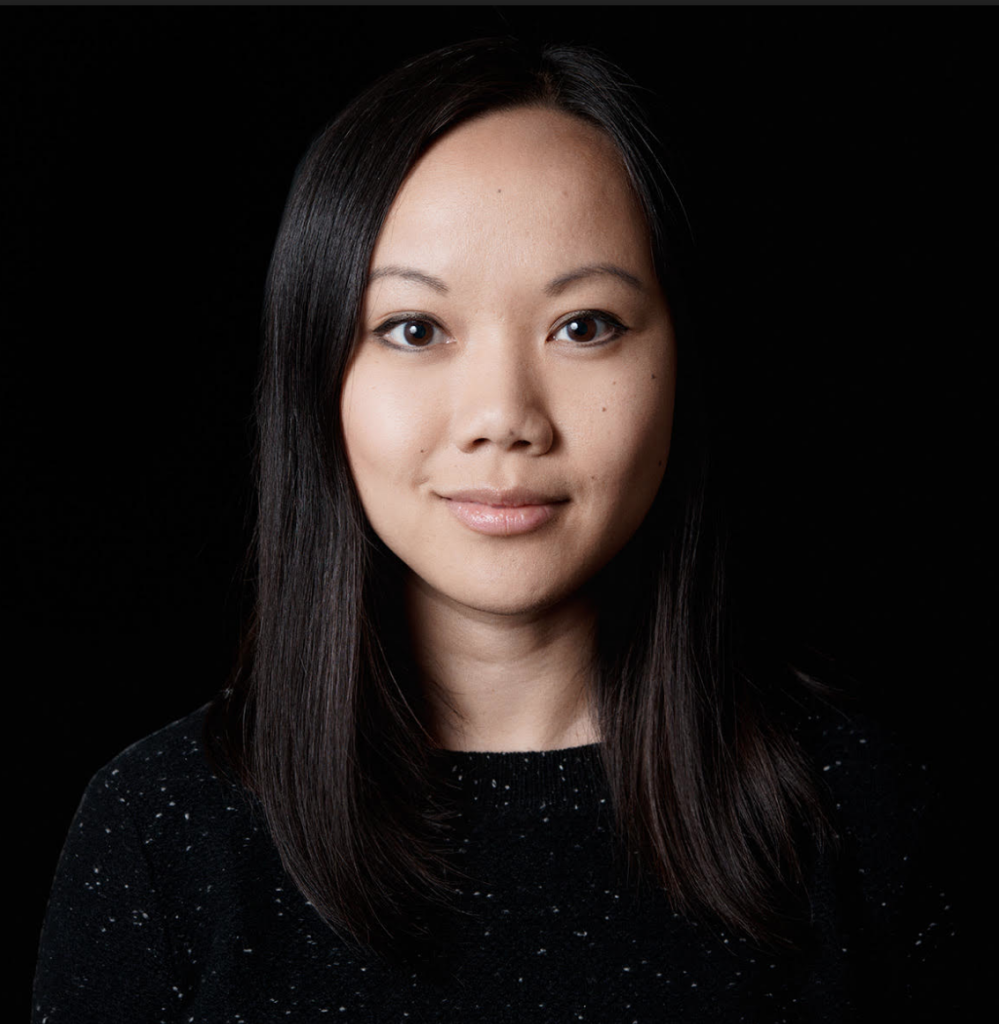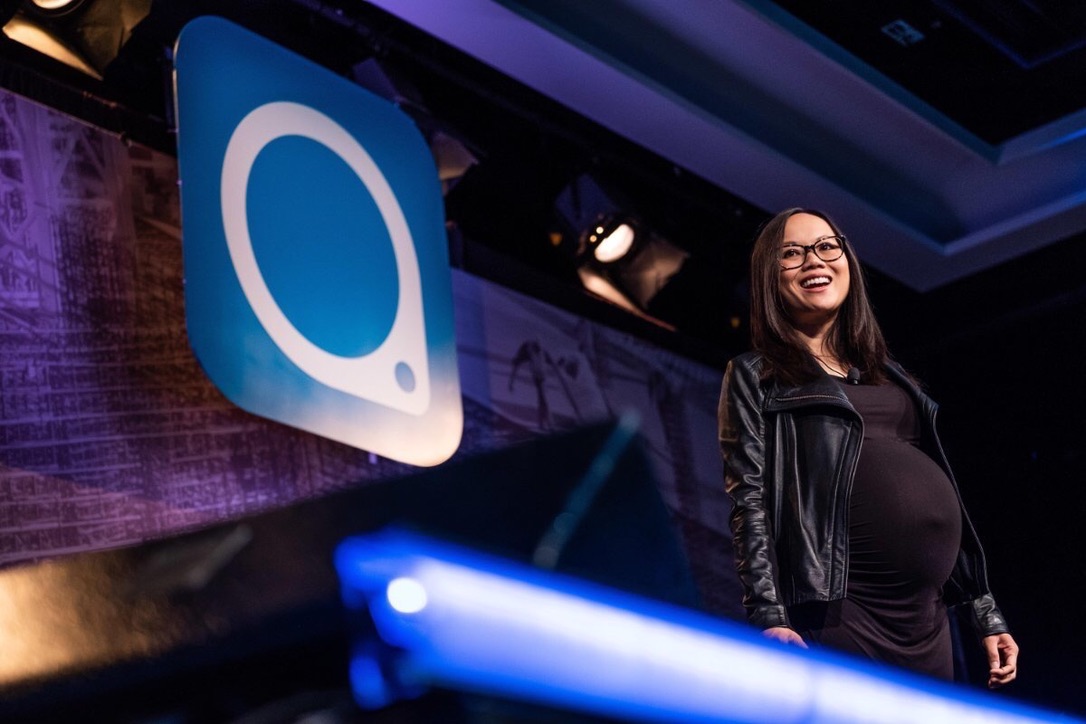Not a lot is written about being a female founder and CEO. I used to believe that my journey as a startup founder was the same as any other founder’s experience, regardless of gender, in that it is lonely and hard. I believed the same when I worked in construction. At the time, any questions about there being a difference felt deeply unnecessary to me.
For example, here is my snarky answer in 2015 at TechCrunch Disrupt: “When Tracy wakes up every morning, Tracy doesn’t think ‘Oh, I am a female.’ When I wake up in the morning I think ‘Wow, I’ve got a lot of work to do. I better get showered, caffeined up, and get my ass to work.’”
For context, I am the daughter of refugees, first to be born in America. The minority part of my identity I understood well, having witnessed my immigrant parents grinding their nose to the stone without ever complaining, so their children could have a better life. I was proud to be their child. The female part of my identity, however, was hidden under plain masculine clothes and behind a stoic demeanor. I was afraid that I wouldn’t be taken seriously as a CEO and I perceived any attention to my gender as bad.
Then, when I became pregnant in 2017, my opinion changed. Women have different lived experiences than men, and not acknowledging this would be a disservice to humanity.

On the same day I learned I was pregnant, I also learned that one of our tech executives left his laptop on his desk, and would not be coming back to work. I remember the highest level of excitement I have ever felt, finally pregnant after trying for almost a year, and within a few hours, I swung to one of my lowest moments as a CEO.
I thought that I must be the worst leader for someone to just leave me like this. That night, I vomited into my sink and cried sloppily in the dark. Someone I trusted had snuck out of responsibility in the most selfish way imaginable, and my body responded with intense physical reactions. I wondered if male CEOs would have reacted this way. I wish I knew. By morning, I kicked off an executive search, filled in as leader for the department, and announced my decision to the team. One thing I learned during this time was to not waste turbulence. As part of the shocking announcement of our executive’s sudden departure, I also made a bunch of decisions that I previously lacked the courage to make and rolled everything out at once. There were major people and product roadmap changes, budget and schedule cuts all in the span of a few weeks. Our team had many questions, followed by many emotions and opinions about our new R&D direction. Some team members, including great engineers, quit.
Emotional roller coasters seem to be law in startups, and I believe managing our own emotions is a big part of the job. What I have found is that I cannot stop myself from being human, but I can practice dialing down the duration of negative feelings like anger, fear, and sadness.
When my baby belly began to show, I told my leadership team we were expecting, and by the end of day most at the company knew too. There are no secrets in a startup. One colleague told me the next day that she knew I was pregnant because she saw me eat two bagels. That conversation made me realize that team members are always keeping an eye on their founders and leaders. In some cases, I do believe my coworkers genuinely cared for me. In most cases, I believe they were evaluating how well the company was doing based on my actions throughout the day and that factored into whether or not they should answer all the recruiters’ calls.
Three months before I was due to give birth, I got a message from the CEO of a large competitor who had enough cash to acquire us. There was M&A activity in our industry, and, I too, wanted the option for our startup to become acquired. I was to give a presentation to several of their CxOs (a strong indicator that they were not just kicking the tires). In my own office, it never bothered me that my team’s eyes would sometimes wander to my basketball shaped belly during conversation, but it did get under my skin when these strangers, who I was negotiating with, looked at my stomach during this presentation. But that was mostly my own insecurities, something I would learn to deal with.
Two months prior to giving birth, we received a disappointing M&A term sheet, so we declined. There were more problems in the company that I could no longer ignore, and because there was a baby in my belly, I could not use social drugs to escape from my stress, and was stone cold sober through all of it. I needed to make another leadership change. Some of our board directors told me: “We support your decision, but let’s wait until you come back from maternity leave”, to which I obliged. Although I understood the rationality of their advice, I felt trembling anger for not being supported in that moment. I’ve also come to hate the phrase- “bad breath is better than no breath”, because it is terrible advice. My biggest regrets in business involve keeping the wrong person in the company for too long. I knew in my stomach that it was not going to work every time, I would even dread having unproductive 1-1s with them, but I would come up with excuses like- “I know they can’t stay, but I’m so stressed out right now.” The fact is, I hired the wrong person, I failed to help them grow as a leader and I owed it to my team and company to fix my mistakes.
I went into labor the same night of our first user conference. The weeks leading up to the conference, watching our whole company burn late night candles in preparation for our new product unveiling, I wondered how many male CEOs would skip their conference for the birth of their child? I assume most would. I kept reasoning with myself that if I wasn’t pregnant, there would be no question whether I’d be there or not, so I must be there. Forcing myself to parade my 9-month pregnancy, deliver the keynote, support our team, and work the halls as the host, was my way of feeling like a superwoman, which was mostly about rubbing my own ego. I arrived home around 8pm that evening, and my water broke immediately. I would hear my son’s first cry 32-hours later.
No one told me how hard breastfeeding would be. Like clockwork, every 2-3 hours a tiny mouth latched onto me for 20 minutes, resulting in raw and bloody nipples. The amount of time and effort it requires to breastfeed doesn’t stop there. You’ll also need to make time to eat an extra 500 calories each day, time to pump and wait for milk to slowly drain out of each breast, and then time to clean each pumping piece thoroughly.
After the M&A deal fell through, I was concerned that two of our largest competitors were coming together. I was determined to get back to work as soon as possible and fundraise a war chest to fight back. However, being only 4 weeks postpartum, I was still healing. And by healing I mean I was still bleeding from several tears in my vagina from pushing out a baby. Even something as natural as emptying my bladder felt debilitating. When my son was 6 weeks old, I handed him over to his nanny (a vetted stranger, really) and went back to work. I wiped tears from my eyes as I drove away, convincing myself that the company needed me more than my son. In reality, waiting a few more weeks for my return would not have made a difference.
To this day, I ask myself why I rushed back to work when I wasn’t ready. And I think I was scared. Not because our business was in trouble. We had two years of runway in the bank and our interim CEO (our CFO) and the team were running the business just fine. I think I was scared of what others might think of me as a new mother and CEO, maybe because of my own insecurities, maybe because of the societal norms ingrained in me. I pressured myself into proving that I was as dedicated to PlanGrid as I always have been.
I would spend the next two months driving to VC’s offices, and down to Sand Hill Road, to secure our war chest. Despite this full schedule and constant traveling, I needed to pump milk. But I never asked to use any investor’s Mother’s Room. On some days, I would park my car on a sleepy street in Palo Alto and pump milk with a silicone hand pump in front of someone’s nice house, reading profiles of the investors in my next meeting from my iPhone. Occasionally someone would drive up, or a jogger would run by, and I would feel completely humiliated.
I’ve always hated fundraising. It’s putting our hearts and souls on a platter for money and for smiling strangers to poke holes in us. However, PlanGrid could not have fueled growth the way we did without selling pieces of it to investors who took a chance on us. I often get asked about how it was to fundraise as a woman. I’ve heard awful stories firsthand from friends. Horrific stories like being offered a term sheet if sex was involved. Thankfully, that was not my experience. I believe I am in the minority.
I think there are bad apples in every industry, but it is especially prevalent in those that control so much money and power. We tried to time all of our fundraising for when we were in a position of strength with attractive revenue growth and enough money in the bank to walk away from any or no deal. I also fundraised with my co-founders, and in later rounds with my CFO. I think it is easier for predators to target their prey when they are alone. I was never alone.
After half a dozen no’s to our Series-C fundraising, and a few weeks before we planned on stopping fundraising all together, we secured a round. We then received a revised M&A offer to purchase our company at a much higher price.
Our job as founders and CEOs is to maximize all options for the company and choose the best path forward for our team and customers. A part of me wanted to stay CEO of PlanGrid forever. I grew up at PlanGrid. I watched one of my co-founders die of cancer during PlanGrid. I married another one of my co-founders and we became parents together. My self worth was completely tied to the company. PlanGrid gave me purpose and fulfillment. However, in fall of 2018, the best option for our company given the competitive and market risks, and our own internal challenges, was to sell our company to an incumbent with obvious technical synergies, for over 10x multiple on revenue. So we did. The day we announced the sale to our team was the most frightened I have ever felt in my life. I was afraid that I had let our team down by selling, but they didn’t see it that way. That night, we celebrated together.
My contract with our acquirers was set to last 18 months. The plan included 12 months to run PlanGrid as a standalone company (or try to), and 6 months to fully integrate into the mothership. Everything that made me a good founder, made me a terrible employee at a public company. I was used to having complete autonomy in leading PlanGrid. As a startup, we would make changes quickly. We could take dozens of small bets and risks every quarter. Depending on those results, we would abandon or make larger bets in the direction that was working. Risk taking is much more limited at a public company, in part because they must report to Wall Street every 3 months. At a larger company there are also more dependencies, it felt like I couldn’t sneeze without asking permission from the heads of five other departments. New leadership took good care of our team and products, and people were nice to me, but it was obvious I was unhappy there.
A few months after the acquisition, I became pregnant for the second time. And shortly after I found out, I also had a miscarriage. While with my team, I felt it slip out of me. I went to the bathroom and I knew exactly what it was. I walked back out to the group pretending as if nothing happened. For the next few months, I grieved, fighting back tears almost every hour.
The women’s experience can be really hard – I went through infertility, pregnancy, birth, miscarriage all the while trying to balance being a good leader, good mother and good partner. To top it all off, I felt I had to be a version of what I thought a good male CEO was, so that I wouldn’t be judged or treated differently. It would take me years before I realized how delusional I was. I became a better and happier leader by being honest in who I was, even if it meant feeling raw heart pounding discomfort most days. And it turns out, my female identity was much more important to me than I realized going in.
The tech industry has a long way to go toward gender equality in the workplace. The first step to change is acknowledging that things need to change.
I am no longer employed by the company that acquired us. I posted on LinkedIn that my watch has ended. I have much more time to read about the world we live in and who is controlling it. When I look at leadership across companies, and leadership across countries, it looks predominantly male. And that means our world is missing out on a lot of hardworking, self-identifying women who can improve it. The problems of our time are overwhelming and massive. In the midst of a pandemic and too many crises, our women leaders are proving they are great at leading and getting things done.
I want to see a world where men and women, who make up equal halves of humanity, also make up equal halves of leadership. When that happens, I wholeheartedly believe that the entire world will benefit. We owe it to our sons and daughters to work hard to get there.
Thank you to Nina Achadjian, Maria Alegre, Andrea Barrica, Ralph Gootee, Kat Manalac, Madison McKay, Kristina Milian, Sarah Moon, and Strat Sherman for reading drafts of this.
This piece was originally featured on Tracy Writes, and was published here with permission.

